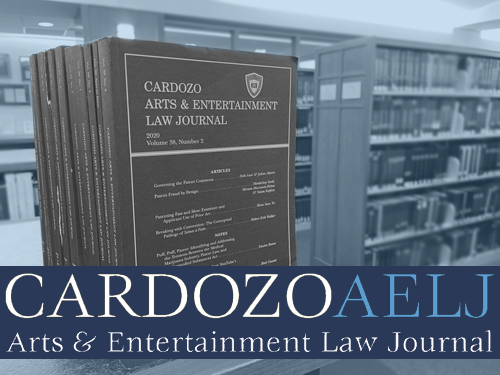Document Type
Article
Publication Date
11-9-2020
Graduation Year
2022
Abstract
In recent years, the Supreme Court has made clear that the First Amendment applies to trademarks. In Matal v. Tam, the Supreme Court held that the statutory bar on “trademarks that may ‘disparage … or bring … into contemp[t] or disrepute’ any ‘persons, living or dead’” violates the First Amendment. In Iancu v. Brunetti the court struck down a bar on “the registration of ‘immoral[ ] or scandalous’ trademarks”, again on First Amendment grounds, determining that the term FUCT could be trademarked. In several concurrences in Iancu, justices argued that obscene trademarks can still be barred, due to the traditional obscenity exception to First Amendment protections. Justice Sotomayor, joined by Justice Breyer, explicitly stated that the Miller test for obscenity applies to trademarks, and that trademarks which fail the Miller test may still be barred. Such an exception makes sense. The Supreme Court has historically recognized that obscenity is not protected speech, and despite criticisms from some justices, is yet to abandon that approach.
This post was originally published on the Cardozo Arts & Entertainment Law Journal website on November 9, 2020. The original post can be accessed via the Archived Link button above.
Recommended Citation
Hall, Carter, "Obscene Trademarks: What Will Iancu Allow?" (2020). Cardozo Arts & Entertainment Law Journal (AELJ) Blog. 253.
https://larc.cardozo.yu.edu/aelj-blog/253



